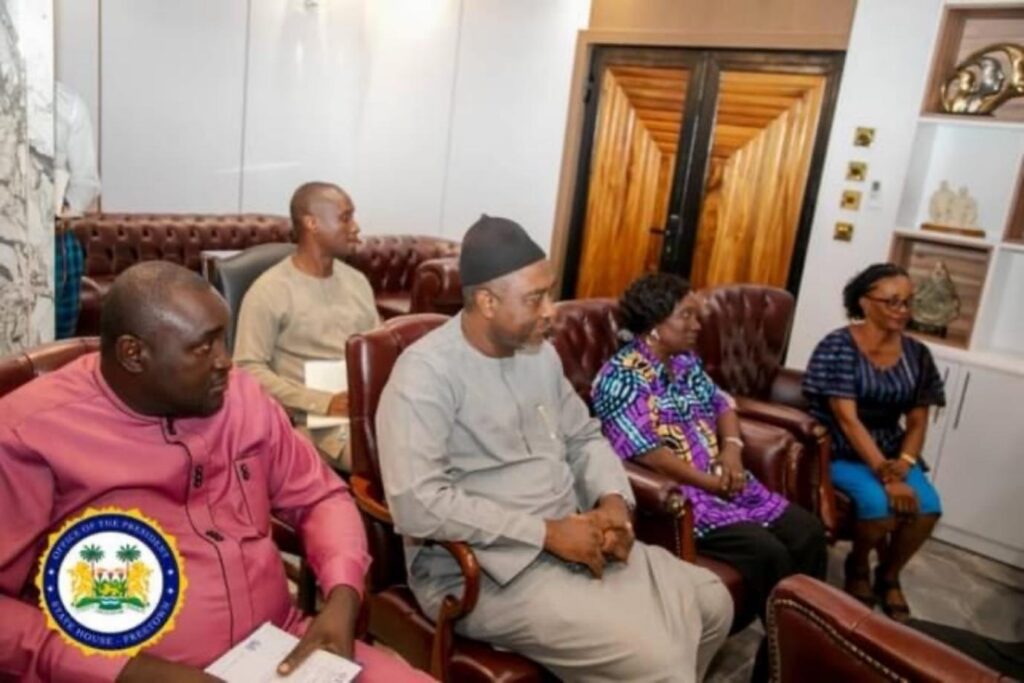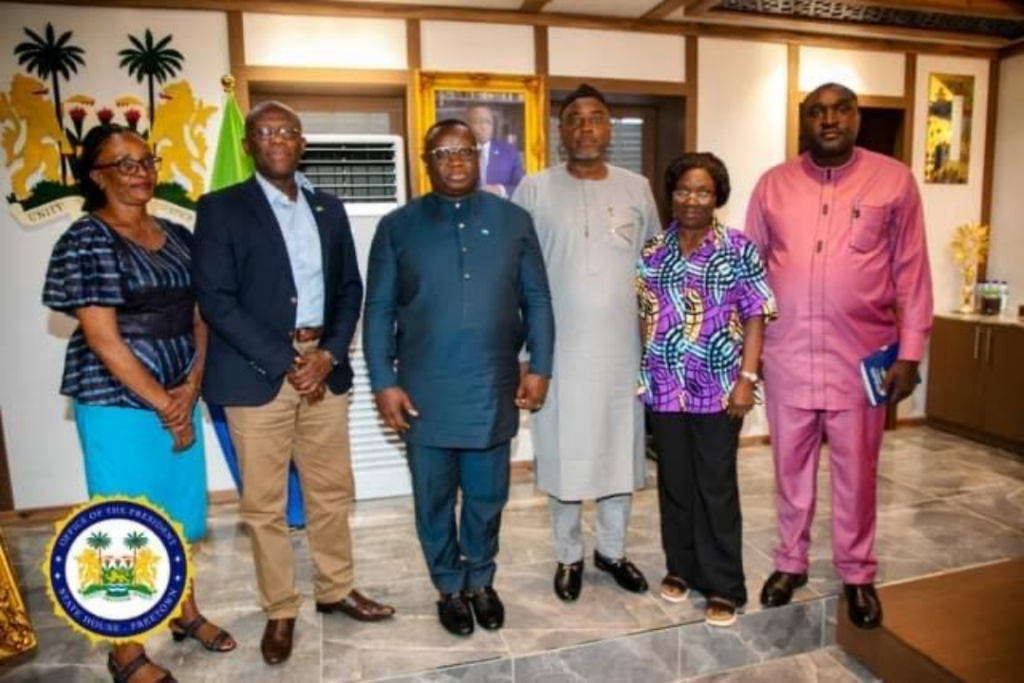His Excellency President Dr Julius Maada Bio has engaged the Chairman and Commissioners of the Independent Media Commission (IMC), on post-rep the eal of Part Five of the Public Order Act of 1965, which criminalised free speech and stifled professional journalism in Sierra Leone. The media regulators used the platform to update the President on general progress in the media while confirming that because of the repeal, 90 per cent of aggrieved members of the public now turn to the Commission with their complaints against the media and members of the press, instead of seeking redress in court.
The Chairman, Dr Victor Massaquoi, acknowledged the fact that the repeal by President Bio of the obnoxious law was one of the most successful landmark achievements the country had had in its more than 60 years since independence in 1961. Dr Massaquoi said they took office in the last 20 months and had made a lot of gains and successes – from developing a strategic direction that had enhanced the commission’s reputation to improving monitoring, research and the development of staff and media capacity. He said taking that section of anti-press law had further strengthened the commission in such a way that more members of the public now seek redress with them. He noted that their timely response to media-related issues and complaints had increased public trust and confidence in the commission.
The Chairman also registered some of their challenges, albeit amidst some bright spots like securing scholarships for some members of his staff to pursue professional training abroad. He, therefore, called on the President to support community radio stations to champion the government’s Big Five Game Changers, especially the FEED SALONE initiative.

In his remarks, President Julius Maada Bio thanked the Chairman and Commissioners of the IMC for making time to update him, confirming that the Commission was directly answerable to his office, and noting that that was why they were required to keep him informed of their activities and operations. The President said his first and second terms in office were to remind Sierra Leoneans that, as a nation, they had started their development late, stressing that the government was committed to making sure that all sectors worked together in the interest of getting it right.
He reminded them that the government’s capacity to absorb graduates into public service was too small, expressing hope that with the FEED SALONE initiative, “agriculture will stimulate broad-based development, thereby providing employment, achieve food security and economic growth for our nation. The FEED SALONE initiative will keep our youths preoccupied. As a government, we are trying to engineer our public sector to be productive. We must deliver as a government, and the machinery must be up to the task. We can accelerate development, which is very important to us as a government. Therefore, the idea of cascading the Big Five Game Changers into your activities is important, because we are going to have better information on how we can market our nation. I think that should be the business of all citizens,” the President urged.
